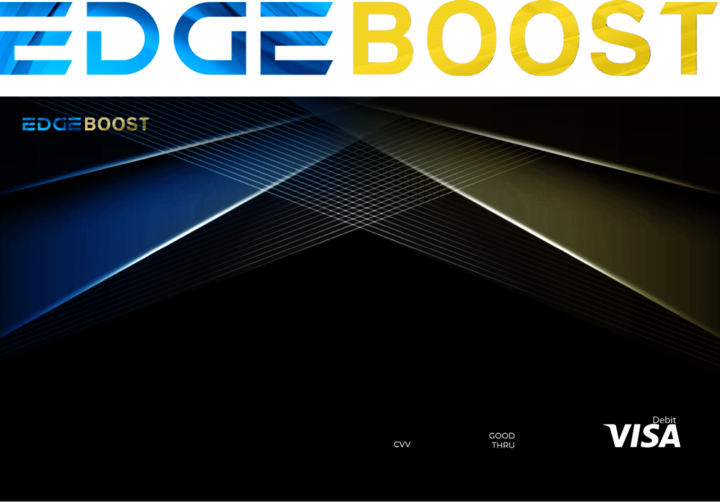Brian Quintenz has previous on sports-based event contract offerings.
NJ AG questions core legality of sports contracts in Kalshi case.
In +More: Entertain’s Belgium win.
MGM Resorts to pay $8.5m Nevada fine for its part in Sibella scandal.
Unlock the power of real-time Ai facial recognition with Fincore’s TRI Biometrics:
Trigger any event instantly: such as blocking self-excluded players or welcoming VIPs.
Easy Integration: Works with almost any camera, including your current setup.
Actionable Insights: Use analytics to understand customer patterns and behaviour.
Trusted Accuracy: NIST-certified for reliable performance.
Who is Brian Quintenz?
Every man builds his world in his own image: The upcoming Commodity Futures Trading Commission (CFTC) roundtable on April 30 is set to offer an insight into just how far the Trump administration wants to pull apart the current structure of state regulation of gambling in order to give prediction markets free rein.
News late last week suggested the CFTC is among the independent agencies over which the White House is keen to exert greater control.
Bloomberg said the effort would reflect a “fundamental restructuring of how formerly independent agencies implement and enforce federal laws.”
Waiting in the wings: As it stands, Trump’s nominee to head up the CFTC, Brian Quintenz, who has made no secret of his desire to pursue an ambitious agenda of regulatory reform, is yet to be confirmed by the Senate.
Quintenz was formerly a commissioner at the CFTC during the first Trump administration, from 2017-21. He is also currently a board member at Kalshi.
He has form when it comes to prediction markets and the CFTC prohibition on gaming.
Bone of contention: In a case from 2021 involving ErisX – now known as Eris Futures – and its attempt to offer NFL-related future markets, Quintenz expressed his dissent over a CFTC decision to withdraw the self-certification of ErisX's contracts, effectively preventing them from being listed.
In his reasoning, Quintenz argued that speculating on sports outcomes should not automatically be equated with gambling, and that such contracts can have legitimate economic and hedging purposes.
“There are plenty of events that have a discernible and legitimate economic impact,” he wrote. “That could now be just as true for sporting events as it is for oil, corn or gold production.”
Close to the hedge: In his opinion, Quintenz linked the 2018 Supreme Court decision on PASPA (Murphy v. NCAA) with the potential for sports-related derivatives to serve a hedging role in legalized state sports-betting industries.
“Post Murphy, it is at least logically possible that sport books would qualify for that economic justification,” he said.
He added that sports betting-related futures contracts can and should be considered legitimate financial instruments with economic utility, especially after the legalization of sports betting in many states.
He also criticized the Commission’s process and legal framework as flawed, non-transparent and constitutionally problematic.
Yaas man: Quintenz’s views also chime with the views of another potential player in the debate, those of Jeff Yass, CEO at institutional options trading giant Susquehanna.
As was discussed by Earnings+More yesterday, a subsidiary of SIG is also a major institutional trader within the Kalshi ecosystem.
Square pegs in round tables: Dan Bernstein from Sportico has posted on X that he heard the roundtable “will be more of a forum or hearing than the previously discussed roundtable” and “will include several panels representing a broad array of stakeholder viewpoints.”
He added it will also be livestreamed. “I imagine there will be plenty of viewers, as the future of US sports betting is at stake right now,” he said, with a dramatic flourish.
After the jump: Meanwhile, in New Jersey…
EDGE Boost is a dedicated bank account for bettors built to encourage Responsible Gambling. EDGE has found that financial segmentation and budgeting into a Gaming bank account is the easiest and lowest friction pathway to promote responsible behavior. As a neutral financial layer across all gaming activity, EDGE can offer: Universal Limits across all Gaming Spend, Holistic Reporting, Accountability (Weekly transaction reports to friends), Bankroll Cool Downs, and Income Verification. All this with no Operator costs or integration.
For more information, go to www.edgeboost.bet
Kalshi clash
Are you even real? New Jersey Attorney General Matthew Platkin has said Kalshi’s event contracts on sports outcomes amount to unlicensed gambling, and has challenged whether they even qualify as swaps under federal law.
Kalshi has sued New Jersey and Nevada after the states sent cease-and-desist letters.
Righting a wrong: In a filing with New Jersey District Court in Trenton, Platkin asked a federal judge to dismiss the lawsuit, arguing the prediction market upstart is attempting to use federal derivatives law as “a shield for illegal sports gambling.”
Platkin rejected Kalshi’s claim that Commodity Futures Trading Commission (CFTC) approval insulates it from state gambling law.
“Kalshi is wrong,” he wrote, asserting that CFTC designation does not preempt state regulation, and that the company could lawfully continue if it obtained a sports-betting license.
Self-inflicted scars: Platkin cited Kalshi’s own argument in its election contract case, where the platform said event contracts lacked economic or commercial consequence, as evidence it undermined their status as swaps.
If Kalshi is right, he suggested, then casino sportsbooks would be operating unregulated swap markets too.
“This case is not a referendum on whether sports wagering is good policy,” the filing concluded, “but on who gets to decide whether and how to legalize it.”
Kalshi is represented by Milbank’s Gurbir S. Grewal, who until October 2024 was the director of enforcement at the US Securities and Exchange Commission.
+More
Belgium: The European Commission has cleared Entain’s Ladbrokes brand of being in breach of competition law after it was authorized by the Belgian regulator to operate in 2015-16 before the market was fully regulated. The EC said this “did not qualify as an act granting aid” and that the state “did not waive or forgo any resources which should have been paid by Ladbrokes for operating virtual betting.”
Australia: Government officials received over 300 tickets worth A$245,000 ($158k) in sports event tickets from sports leagues over the past two years while discussing a gaming advertisement ban, according to a report from Reuters. The report suggested the distribution of the freebies were part of the sports industry’s lobbying against a potential ban.
Provincial life
Step by step: Slowly but surely online gambling legislation is making progress in Alberta with the iGaming Alberta Act having completed its second reading in the province’s legislature, meaning it now moves to the Committee of the Whole before being put to the entire Assembly.
Legislators will now be able to add amendments to the bill, which as it stands intends to establish an open market for both OSB and iCasino in the province.
Any amendments are expected to include the potential tax rates applicable.
Flow away: Gaming New Canada noted the bill as introduced by Dale Nally, Alberta’s minister of service, made it clear the government was hoping the changes to the regulatory status of online gambling would stop the flow of players to offshore sites.
“More than half of players in the province exclusively place bets on unregulated sites,” Nally told the legislature last week.
“A significant number of Albertans are potentially being preyed upon by grey market sites or illicit sites. This legislation proposes to change that.”
Please be safe: Nally was keen to stress the move to regulate did not represent a “cash grab” by the province’s government. "We’re not looking to create new gamblers in Alberta,” he said, arguing the move to regulate was about offering responsible gambling options.
“If you don’t gamble today, please don’t start tomorrow,” he added.
“That is not the purpose of this. We know gambling will never be safe, but there are ways to make it safer and more responsible. That’s what we aim to do.”
Measures included within the bill include a self-exclusion program and set the minimum age for online betting at 18.
The bill proposes creating the state-owned Alberta iGaming Corporation, which would be responsible for signing contracts with operators, while regulation would be handled by the Alberta Gaming, Liquor and Cannabis Commission.
If the legislation passes the final hurdles, the market is expected to launch early in 2026.
State by state
North Carolina: The budget proposal to double the OSB tax from 18% to 36% has passed the state Senate. Analysts at Jefferies noted that, while support for the measure in the state House is “questionable,” an increase looks “more likely” than in other states. The team added that, if passed, the increase would go into effect in October.
New York: A new bill has been put forward in the Assembly that sets out to legislate caps on how much a consumer can bet and on how sportsbooks promote their offerings. The proposal, put forward by Assemblymember Robert Carroll, has been submitted to the Assembly’s Committee on Racing and Wagering for further discussion.
Colorado: A push to tax the promo bets offered by sportsbooks has emerged in Colorado with a House bill that looks to generate $12m next year. “The thought with this bill is that it’s time to make this change. It’s a great way to generate more funding,” one of the proponents, Sen. Dylan Roberts told The Colorado Sun.
Arizona has sent cease-and-desist letters to six illegal and unregulated online gambling operators. The Arizona Department of Gaming threatened the slot-style casino games, sweepstakes platforms, sports wagering, horserace betting and peer-to-peer wagering exchanges with felony charges unless they exited the state immediately.
Nominations are now open for the 2025 Vixio Global Regulatory Awards!
Celebrate the unsung heroes of compliance and responsible gambling by submitting your nominations.
Submitting is quick, free, and simple, and you can submit for multiple categories.
🗓️ Deadline: May 19th
🔎 Learn More & Submit: https://gamblingcomplianceawards.com/2025-awards-categories
Taking the medicine
Fess up: MGM Resorts will pay an $8.5m fine as part of the settlement with the Nevada Gaming Control Board for its role in the Sibella case.
The Board found MGM properties, the MGM Grand and the Cosmopolitan, had allowed illegal bookmakers to gamble on the premises between 2015 and 2018.
They concluded that former MGM Grand president Scott Sibella and two other casino hosts on the properties were aware illegal bookmakers Wayne Nix and Mathew Bowyer gambled at the casinos, and comped them rooms, meals and golf trips.
The MGM Resorts settlement follows a similar outcome reached with Genting’s Resorts World Las Vegas last month in connection to similar issues, where that property paid a $10.5m fine.
Sibella was also formerly COO at Resorts World Las Vegas.
The MGM and Genting cases emerged as part of the Ohtani scandal, which also saw Sibella plead guilty in January last year in a Los Angeles courtroom to a charge of failing to report suspicious activities at the MGM Grand.
Calendar
Apr 24: The future for the UK gambling sector, London
May 14: Player Protection Symposium, SBC Americas, Fort Lauderdale
Jun 5: Gaming in Holland, Amsterdam
Jun 9-12: IAGA, Berlin
Jun 26: Gaming in Spain, Madrid
Rewire your RG Strategy
Founded on over a decade of groundbreaking research in neuroscience and neuroimaging, Mindway AI revolutionises safer gambling solutions. We combine innovative AI technology and deep insights into problem gambling from an expert panel to create secure, responsible gaming environments. Trust Mindway AI for a smarter, safer gambling experience.
Learn more at mindway.ai
An +More Media publication.
For sponsorship inquiries email scott@andmore.media.










